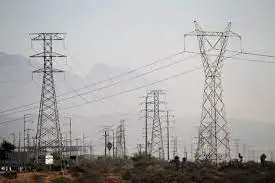Chinese company, First Solar partner on plant
ORDOS, CHINA - A U.S. company said it wants to start construction this year in China of one of the world's biggest solar power plants after forming a partnership with a major state-owned utility company.
First Solar Inc. announced plans in 2009 for the facility in northern China's Inner Mongolia region. The company said it hoped to break ground in mid-2010 but a pre-feasibility study was not approved until September and regulators delayed approval of higher payment rates for solar-generated power.
China Guangdong Nuclear Solar Energy Development Co. will become the majority partner in the facility's first phase in the city of Ordos, First Solar said. Executives said ownership stakes, financing and other details still were being negotiated.
Plans call for 2 gigawatts, or 2 billion watts, of generating capacity – the equivalent of two coal-fired plants – covering 64 square kilometers 25 square miles to be built in stages through 2020. The first stage is 30 megawatts.
First Solar's president, Bruce Sohn, said the Chinese partner would supply engineering skills and influence in China's energy market. It is a subsidiary of China Guangdong Nuclear Power Co., which operates two nuclear power plants in Guangdong province, near Hong Kong, and is building four more.
"We see China Guangdong Nuclear as being a very strong, viable and important partner," Sohn told reporters.
Sohn said the company wants to start construction by the end of the year.
Beijing is promoting solar and other renewable energy, but business groups complain regulators are trying to support domestic technology suppliers by shutting global rivals out of key projects.
First Solar, based in Tempe, Arizona, said in 2009 it planned to turn the Inner Mongolia plant over to a Chinese operator. Foreign companies sometimes are required to take on local partners to win approval for projects in China, but First Solar executives said the decision to bring in Guangdong Nuclear was not dictated by the government.
"In terms of who we selected, absolutely it was our choice," said T.K. Kallenbach, First Solar's executive vice president. "We were looking for people who were the best match for us, and China Guangdong Nuclear was that match."
First Solar and Guangdong Nuclear are working out costs and other details and preparing a business plan to submit to the government to request favorable power prices to support the project, Kallenbach said.
Sohn said the thin-film power panels for the Inner Mongolia project were likely to be produced by a First Solar factor in Malaysia.
The two companies will share expertise in building the plant, but First Solar is not required to turn over solar panel technology, Kallenbach said. Technology transfer as part of other deals has sometimes prompted complaints by foreign companies that Chinese partners use the know-how to compete against them.
Related News

Hinkley C nuclear reactor roof lifted into place
LONDON - Engineers have lifted a steel roof onto a building which will house the first of two nuclear reactors at Hinkley Point in Somerset.
Hundreds of people helped with the delicate operation to get the 245-tonne steel dome into position.
It means the first reactor can be installed next year, ready to be switched on in June 2027.
Engineers at EDF said the "challenging job" was completed in just over an hour.
They first broke the ground on the new nuclear station in March 2017. Now, some 10,000 people work on what is Europe's largest building site.
They have faced delays from Covid restrictions…




